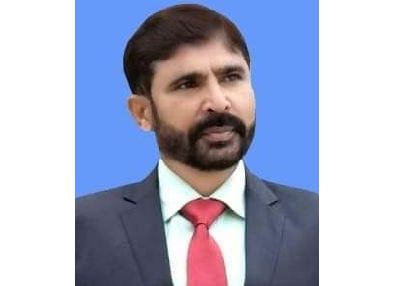Dr. Muhammad Akram Zaheer
Nebraska is a triply landlocked state in the Midwestern region of the United States. It borders South Dakota to the north; Iowa to the east and Missouri to the southeast, both across the Missouri River; Kansas to the south; Colorado to the southwest; and Wyoming to the west.
Nebraska is the 16th largest state by land area, with just over 77,220 square miles. With a population of over 1.9 million, it is the 37th most populous state and the 7th least densely populated. Its capital is Lincoln, and its most populous city is Omaha, which is on the Missouri River.
Nebraska was admitted into the United States in 1867, two years after the end of the American Civil War. The Nebraska Legislature is unlike any other American legislature in that it is unicameral and its members are elected without any official reference to political party affiliation.
The setback for a Donald Trump-backed initiative, Nebraska encountered a stumbling block in its endeavor to adopt a winner-take-all system for presidential elections in November. The proposal, supported by the former president, faced a critical moment on Wednesday as state lawmakers voted down a procedural motion, effectively thwarting its advancement.
The Republican-dominated state legislature dealt a decisive blow to the measure, rejecting the procedural motion by a commanding margin of 36 votes to eight. This outcome dashed hopes for proponents of the winner-take-all system, with one GOP state senator lamenting the missed opportunity, labeling it as “the last chance to pass winner-take-all this session.” The defeat underscores the complexities and divisions surrounding electoral reform efforts, highlighting the challenges in altering established election procedures within the American political landscape. Despite the endorsements from former President Trump and Nebraska Governor Jim Pillen, LB 764, a legislative proposal by state Senator Loren Lippincott aiming to allocate all five of Nebraska’s Electoral College votes to the top-performing presidential candidate, has languished in the Government, Military and Veterans Affairs Committee for over a year, resulting in renewed efforts to overcome the impasse through procedural maneuvers.
The bill’s intention to alter the allocation of electoral votes in the state has sparked significant debate and contention, reflecting broader national discussions on election reform and the Electoral College system. With its prolonged stagnation in committee, LB 764 underscores the complexities and challenges inherent in enacting electoral legislation, particularly when it involves fundamental changes to the electoral process. The involvement of prominent political figures such as Trump and Governor Pillen highlights the significance and polarizing nature of the proposed reforms, further amplifying the stakes involved in the ongoing legislative deadlock. As Nebraska navigates the intricacies of electoral reform, the fate of LB 764 remains uncertain, emblematic of the broader tensions surrounding electoral systems in the United States.
GOP state Senator Julie Slama recently brought forth a procedural vote aimed at potentially transitioning Nebraska to a winner-takes-all system for presidential elections, mirroring the majority of states. This initiative, proposed minutes before the vote, was presented as a pivotal moment by Slama, who asserted that the vote on the motion to overrule the chair would effectively signal support for the winner-takes-all approach. In her impassioned plea, Slama emphasized the significance of transparency, declaring that constituents and the nation at large were keenly observing. Despite her efforts, Slama garnered the support of only seven fellow GOP colleagues, falling short of the required number for passage and significantly below the threshold needed to overcome an expected Democratic filibuster, which would demand 33 votes. The outcome underscores the complexities and divisions within the political landscape, revealing the challenges associated with enacting substantial electoral reforms.
Democratic state Senator John Fredrickson responded to Wednesday’s vote by addressing Trump and Turning Point USA CEO Charlie Kirk directly, particularly regarding Kirk’s suggestion that a potential Republican presidential candidate might lose “by exactly ONE electoral vote” in November due to Nebraska’s utilization of the congressional district method.
This method involves allocating two electoral votes to the state popular vote winner and one electoral vote to the popular vote winner in each congressional district. Fredrickson’s message, posted on X (formerly Twitter), emphasized the accountability of the Nebraska Legislature to the state’s voters rather than to Kirk or Trump. He declared, “The Nebraska Legislature answers to the voters of Nebraska, not Charlie Kirk or Donald Trump.” He underscored the significance of the vote as a means of safeguarding the Electoral College system in Nebraska, framing it as a victory for the populace’s influence within the state.
After Wednesday’s vote, Lippincott expressed determination to persist in his efforts to advance LB 764, acknowledging the challenging outlook for the current year while affirming plans for a renewed push in the following year, characterizing it as the “varsity try.” Despite the setback, Lippincott’s commitment signals a sustained effort toward achieving his legislative goals. Concurrently, Nebraska state Senator Mike McDonnell’s departure from the Democratic Party to join the GOP was notable. McDonnell cited the Democratic Party’s internal response to his anti-abortion stance as a primary factor in his decision. This move underscores the complexities within political parties and highlights the ongoing debates surrounding contentious issues such as abortion within political spheres.

















